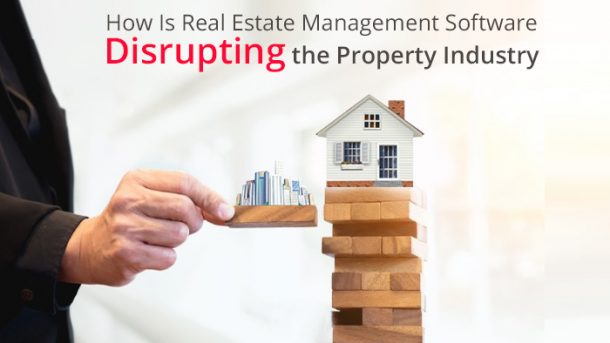If the reach of technology across all sectors is a measure of how the world is becoming more efficient, especially with dwindling resources and increasing expectations, experts confirm the property market is rapidly being disrupted. Thanks to the rise of sophisticated real estate management software and the expansion of its market, 2016 saw 235 real estate tech companies grab venture capital funding, as opposed to just 72 companies in 2012.
The enormous and broad-ranging benefits that property owners or real-estate companies derive from commercial real estate management software is just too hard to ignore, even for those who are tech-averse. We detail how real estate management software has been the true harbinger of more efficient and profitable industry, through the power of improving technologies.
Speed:
Everyone clamours for speed. Be it in property filing processes or evaluating a series of properties for prospects, most of the functions in the property market take time. Disruption indeed happens when industries demonstrate an intentional increase in the pace at which things are accomplished, and real estate rental software has genuinely been its flag-bearer. However, speed comes with its riders: quality and safety.
There are quite a few commercial real estate management software providers trying to go against the status quo and address the complex topic of construction delays. It’s a simple but a great case of how not just the use of cloud, big data and artificial intelligence technologies in real estate management software. It also highlights how property investors, contractors and managers can come together and coordinate on a single dashboard, providing real-time updates and suggestions on
the next thing to do. Speed makes the top of our list because the end objective is to reduce cycle times and offer faster results.
Mobility:
The property market is a very ‘foundational’ business, both literally and figuratively, and being one of the few markets whose asset value increases over time, gives property owners adequate bandwidth to manage work and timelines according to their conventional habits and timelines. But advanced technologies in real estate rental software like mobile computing with faster cloud networks is now upsetting the applecart and upending the industry to become nimbler.
Mobile technology is allowing realtors to work and manage various properties on the go, directly on their mobiles or tablets, or handle new large-project opportunities that their sales teams have flagged. Real estate management software is modelled in such a way to onboard any new technologies like virtual or augmented reality, or the Internet of Things that can simulate the design of new properties to buyers, or control the maintenance aspect of a manager’s properties.
Efficiency:
Back in 2007, Jana Madsen, the managing editor of the famous ‘Buildings’ Magazine wrote a detailed piece about how simple, yet impactful technology was transforming the industry, its image and its constituents, or professionals. They referred to software as web-based client accounting or high-tech instruments. Today, we call them real estate management software.
Move forward ten years to where we are today, and software has evolved to involve end-to-end function enablement, bringing together the entire business and driving enormous efficiencies. Commercial real estate management software firms are taking all the desktop or locally-hosted applications and transitioning them into the cloud. Additionally, they are applying cutting-edge functionalities of the cloud like artificial intelligence or sentiment analysis, helping team members keep track of business movements and real-time updates.
Intelligence:
Real estate management software is now being classified by experts as ‘essential’, reminiscent of how real-estates or properties are as essential to human survival and sustenance. Simultaneously, platforms offering dynamic and customizable software for real estate now use the power of software algorithms and self-learning processes that ingest massive amounts of data fed in, from the subject’s business as well as available customer history or behaviour data that can be sourced from popular real estate aggregators.
Match this intelligence to fuel on-the-go recommendations, with the power of process automation, and you’ve got a perfect blend of brain and muscle. Disruption through even newer technologies in real estate management software like blockchain for signing smart, adaptable contracts or chatbots to improve customer service, and the scope for increased ROI would not be far from the horizon.
Results:
When such software is sold, the results are assured by real estate rental software providers, even before the implementation begins. But the promise can be puffed out if there are half-hearted or disjointed efforts done, perhaps due to lack of interest, or an experimental mentality that is not intentional in getting the systems in place.
Today, real estate management software from major vendors are instruments to achieve multi-fold increase in results across various verticals of the business, i.e. owner or resident management, partner or vendor management, accounting or listing.
It’s no wonder then that the new start-up firms are beginning to descend on the porches of new-age real estate startups. These startups are innovative and have helped in transforming the real estate sector.

Thanks for the article. It really assists my business. I’ve been going through HOW IS REAL ESTATE MANAGEMENT SOFTWARE DISRUPTING THE PROPERTY INDUSTRY